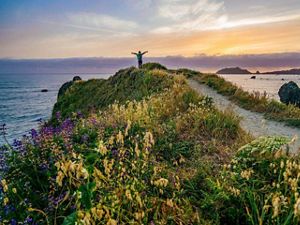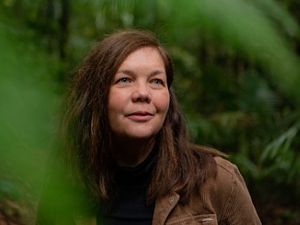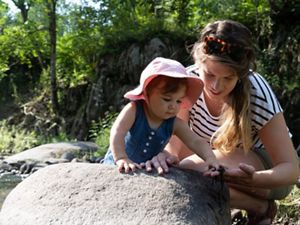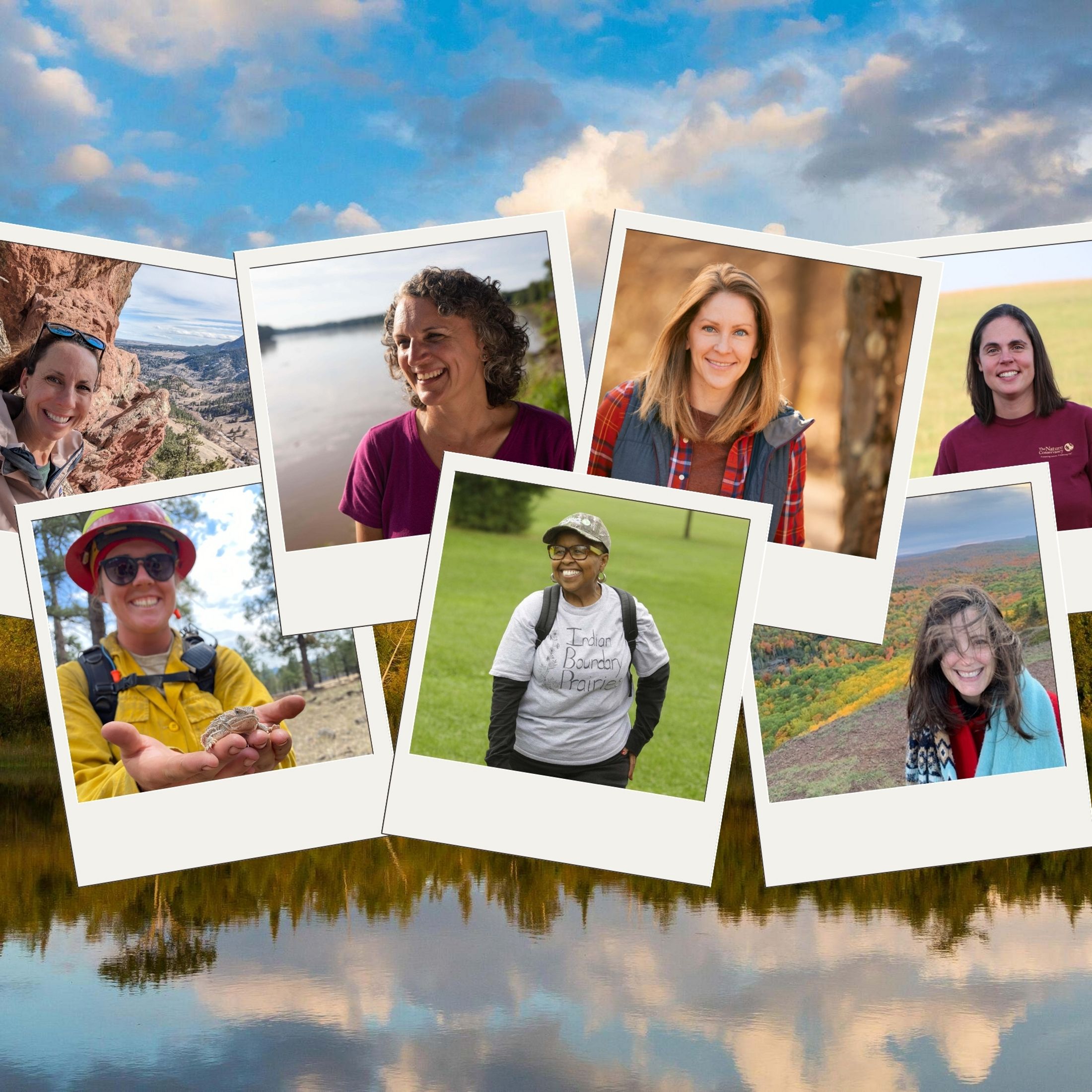
Midwest Women Leading in Conservation
Meet some of the extraordinary women making an impact on conservation work in the Midwest.
Representation matters. Seeing someone who looks like you not only empowers individuals from historically marginalized communities but also fosters a sense of belonging and legitimacy within professional fields and beyond.
Diversity matters, too. We needn’t look any further than nature to see the benefits of a diverse, connected system. Diversity is the nucleus that supports healthy, functioning ecosystems.
But we have not modeled this structure in the systems that dictate every aspect of our lives. We can and need to do better.
Women make up half the global population and are sacred holders of generational knowledge, culture and life. There is a need for all of us to be at the proverbial table. Especially in conservation, only when we mirror the truths of our work through a combination of lived experiences, perspectives and strengths will we create the most positive and sustainable outcomes for everyone.
Meet the Women Advancing Midwest Conservation
The Nature Conservancy is proud to have many women who are driving change and making an impact on conservation work in our region. From managing communications to managing prescribed fires, women in the Midwest are leading the way in protecting our lands and waters to ensure a sustainable future for all of us.
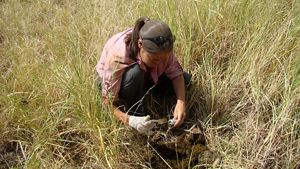
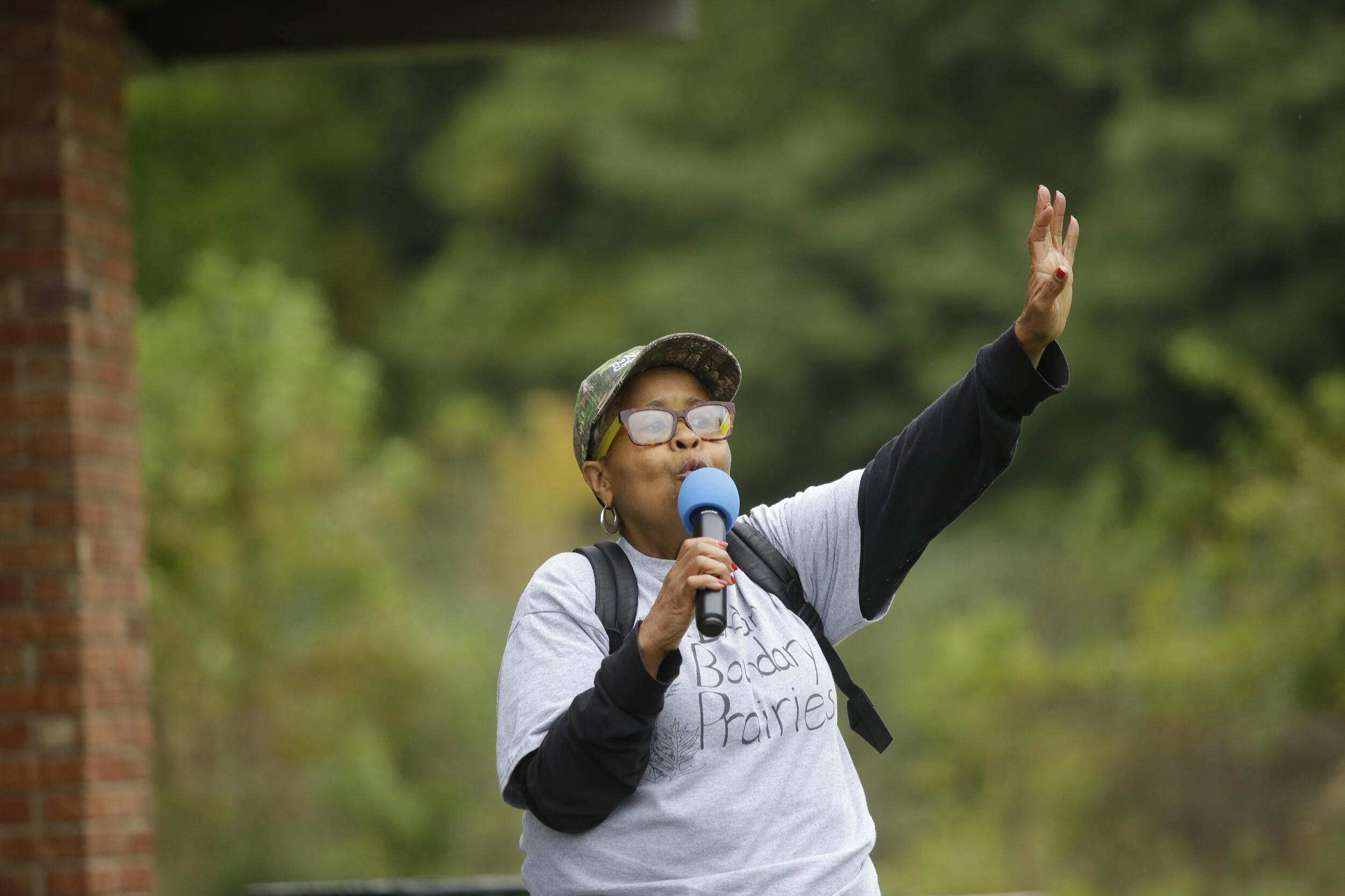
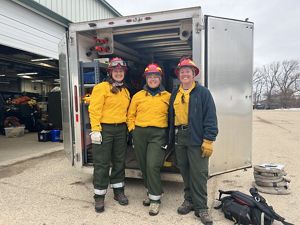
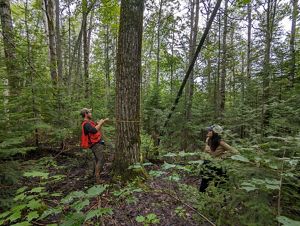
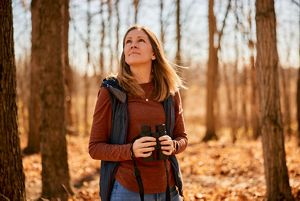

Conservation in Action: Before she joined TNC, Marissa worked traveled to Kenya, where she studied the health and stress levels of elephants that live and eat in the same grazing lands as livestock. © Marissa Ahlering

Debra Williams: As part of her work as the Community Engagement Specialist for the Indian Boundary Prairies, Debra speaks about TNC's work at events like the Awe of Nature Festival. © Joshua Lott

Burn Crew: From left to right, Hannah Butkiewicz, Alicia Rhodes, and Brooke Frederickson, all part of TNC in Wisconsin, participated in a field training session for prescribed burns. © TNC

In the Field: Julia takes opportunities to shadow land management staff to gain in-depth, hands-on understanding of TNC's conservation work in the field. © TNC

Jen Murphy: As Associate Director of Strategic Communications for TNC in Ohio, Jen is passionate about connecting people to TNC's mission and nature through stories. © Grant Beachy
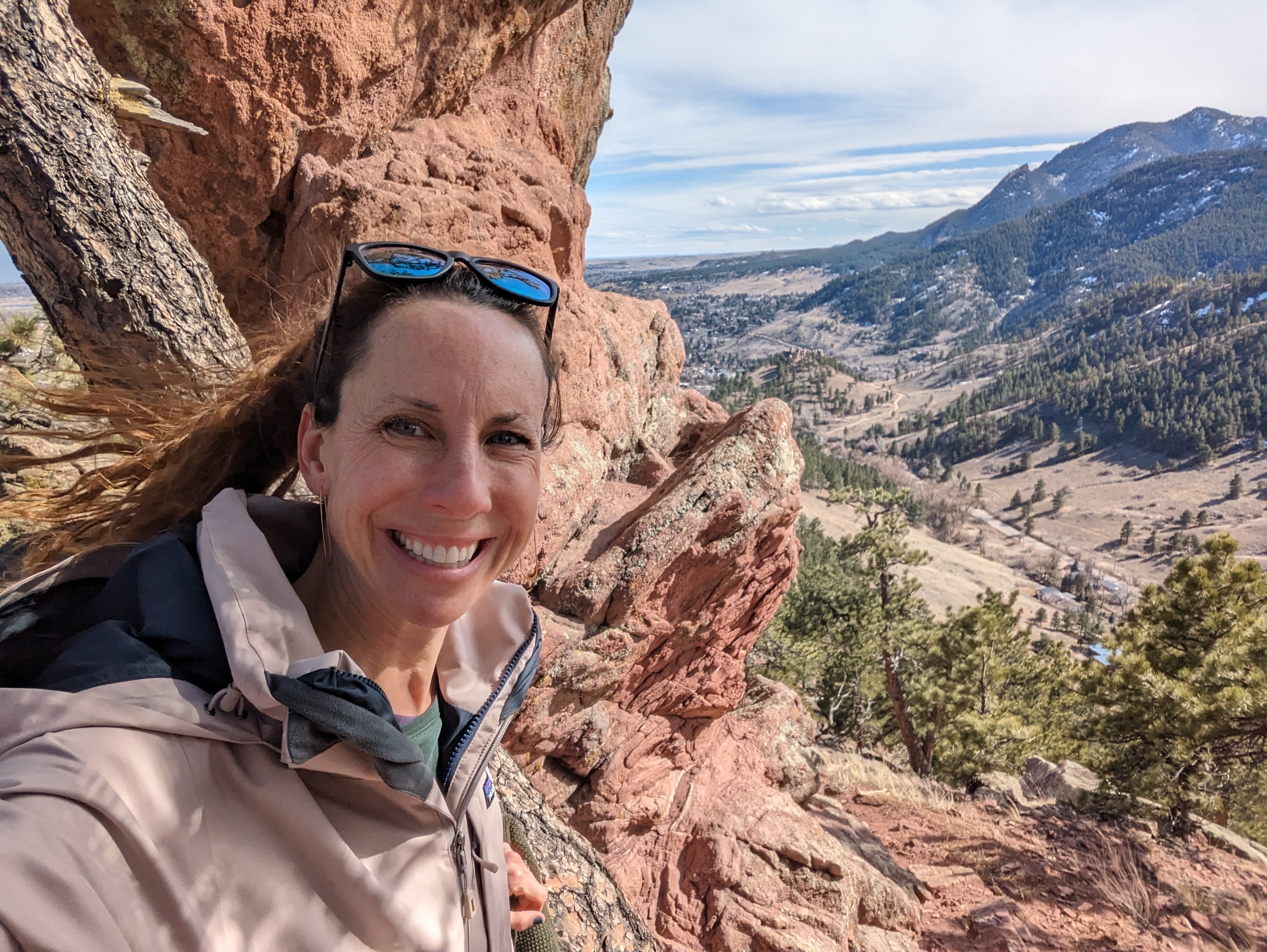
Midwest Division
Anna Dirkswager, Climate and Energy Director
Anna Dirkswager has always been passionate about advocating for nature. As a child, she spent a great amount of her time camping and visiting natural spaces via family excursions. As she got older, her proclivity for the outdoors led her to become a wilderness leader with the Girl Scouts—it was here that she found the strong female role models that would inspire her to work in conservation.
Today, Anna works for TNC in the Midwest, directing, developing, and aligning climate mitigation strategies across Indiana, Illinois, Michigan, Ohio and Wisconsin. She enjoys the challenge of influencing renewable policy and deepening corporate partnerships that address climate change, and creatively thinking about how to implement solutions with the most impact at scale across North America. Her advice to women who are interested in joining or just starting out in a conservation science career?
“Believe in yourself. I think women, more so than men, second guess themselves or don’t believe they’re qualified or fully ready before they go for leadership positions, and I don’t see that same level of pause with men in raising their hands for leadership opportunities.”
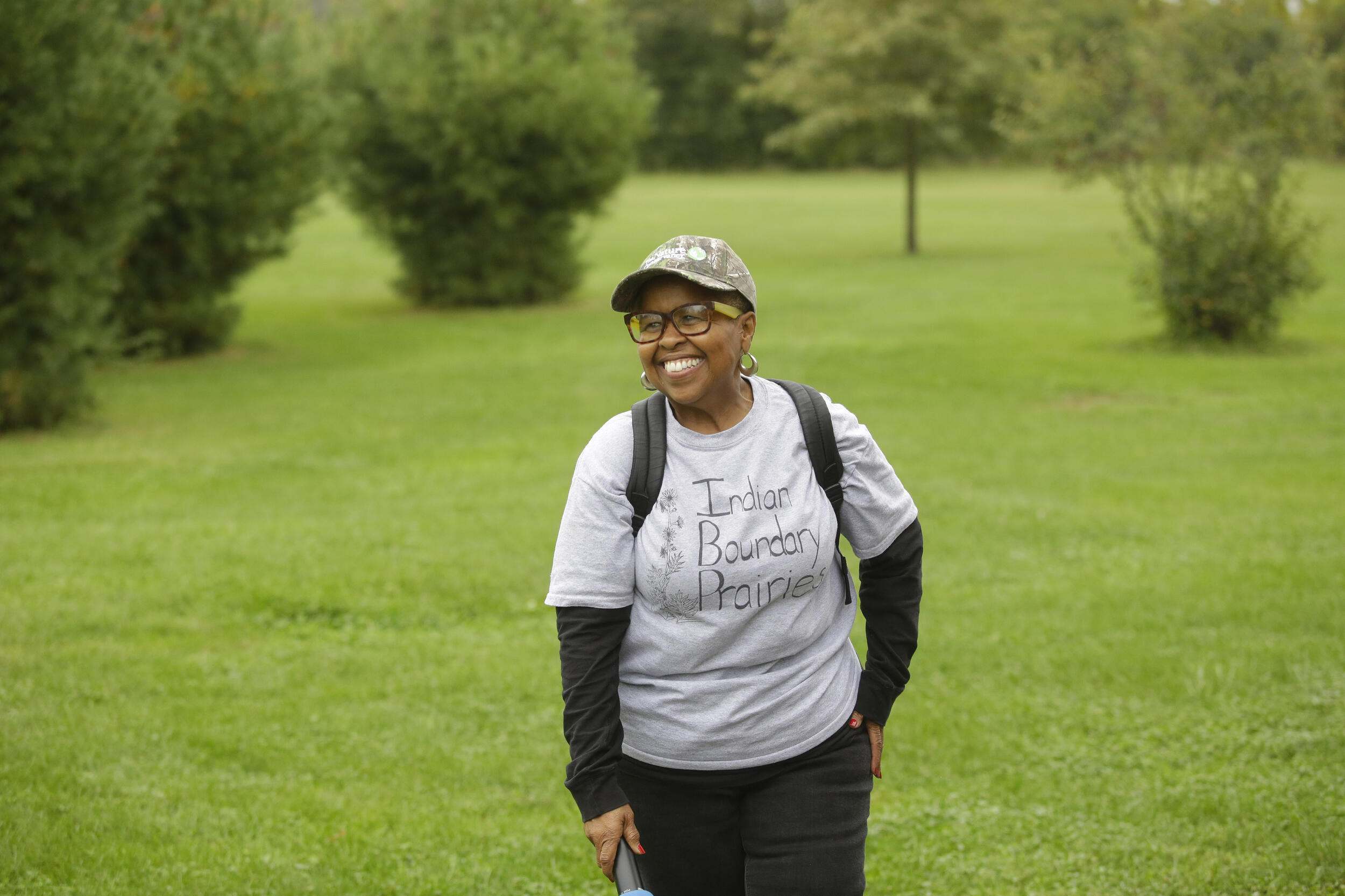
Illinois
Debra Williams, Community Engagement Specialist
Whether as a Speech-Language Pathologist, Pastor, or as a Community Engagement Specialist, Debra Williams has always strived to support, connect with, and empower people through her service work.
Today, Debra employs her prolific experiences for The Nature Conservancy Illinois’ Indian Boundary Prairies. Situated in Markham, Illinois, this preserve makes up 13% of the south Chicago suburb's total land mass. Since joining TNC six years ago, she has created programming that leverages the preserve's unique location and rich natural features to connect people to each other and to nature while advancing conservation.
Debra shares, “What I enjoy most about my role at TNC is being an intentional contributor to the process of learning and growing as it relates to balancing the efforts of conservation for the benefit of both people and nature.”
One of these programs, the Youth Environmental Thinkers (Y.E.T.), is a paid internship providing youth ages 16-21 the opportunity to inform and develop reciprocal relationships with nature first-hand. Other programs like the annual Awe of Nature Festival foster these connections at a larger scale, growing from around 50 attendees in its first year to over 300 in just 4 years.
She encourages the next generation to attend to who they are from the inside out in their pursuits. “Integrous and authentic service must include the well-being of others and doesn’t promote or benefit only oneself or the group(s) we represent.”
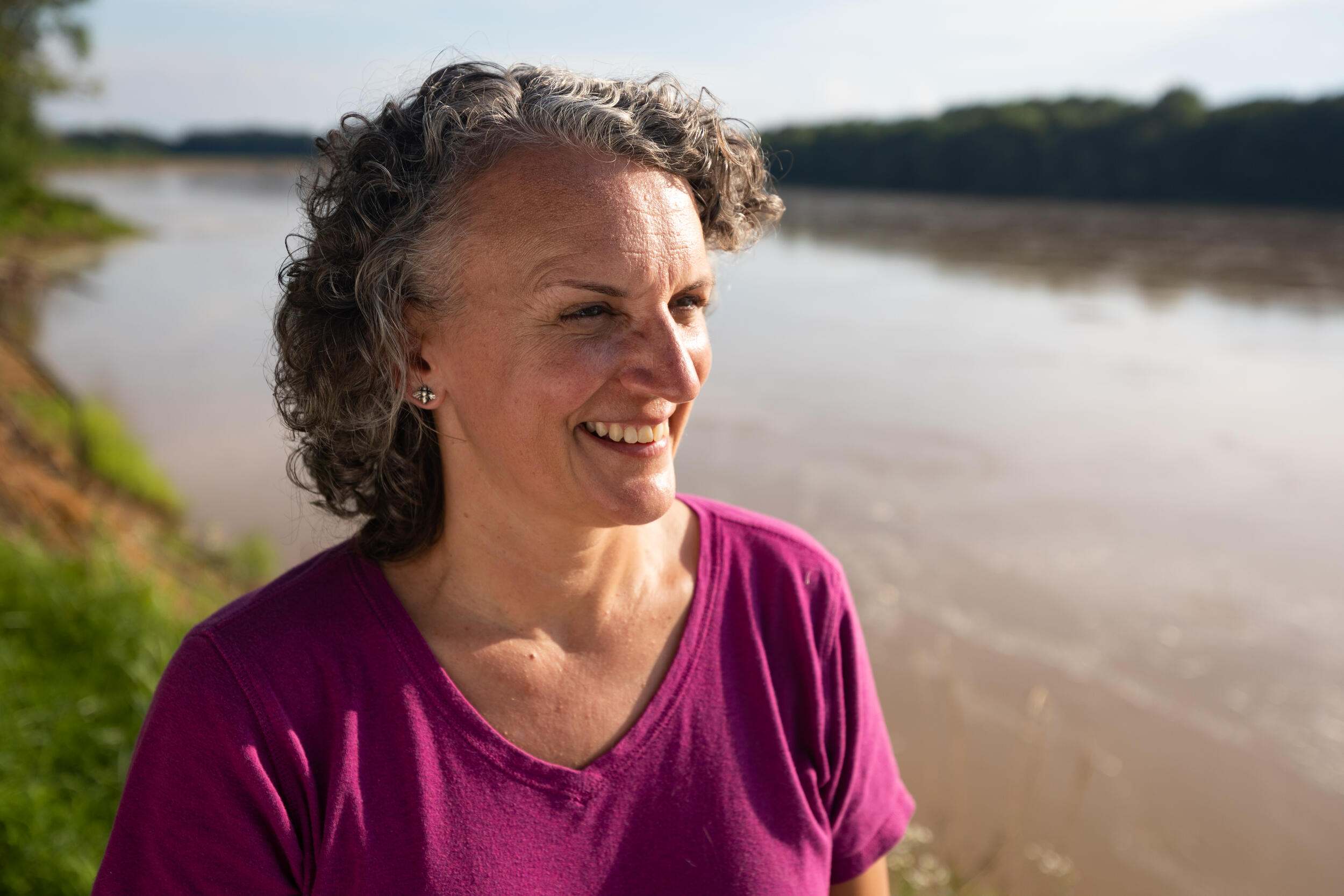
Indiana
Carrie Parmenter, Lower Wabash Project Director
Carrie Parmenter spent her childhood surrounded by farm fields in a small town in Southeast Illinois on the Wabash River. Growing up on the family farm, she learned the importance of stewardship by watching her father and grandfather practice conservation farming.
Her passion for the environment led her to pursue higher education at Truman State University in Kirksville, Missouri, where she earned a degree in Agriculture with an emphasis in Natural Resource Conservation. She spent over a decade working for local Soil and Water Conservation Districts in Southwest Indiana before joining The Nature Conservancy.
Carrie's wealth of experience laid the foundation for her transition to TNC’s watershed work. Her local connections and diverse skill set, ranging from implementing watershed plans to providing environmental education, have positioned her as a valuable asset in the organization's efforts to protect and restore the natural landscapes along the Wabash River in southwestern Indiana.
Carrie’s current role positions her at the forefront of a critical mission—restoring floodplains along the lower Wabash River. Recognizing the importance of these natural areas for biodiversity, water quality and flood control, she employs her agricultural knowledge to implement sustainable practices that benefit both the environment and local communities.
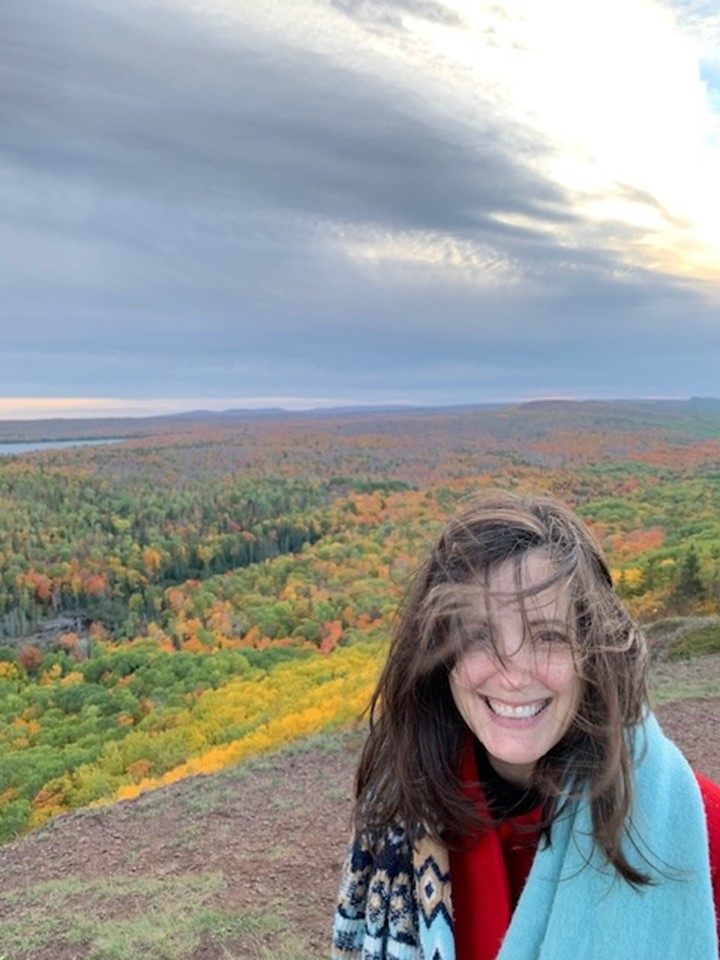
Michigan
Julia Petersen, Keweenaw Peninsula Project Manager
From a very young age, I loved being outdoors and in nature, but because I grew up in the shadow of the Detroit-Metro airport, my access to both was limited. While I was deeply concerned about the land conversion and sprawl, loss of biodiversity, and pollution impacts I witnessed daily, I wouldn’t have been able to put those concerns into words. I never knew any nature- or conservation-based professionals and I was never exposed to fields like ecology or forestry. My conservation and environmental role models were non-existent!
Early in my career, I held back from entering the field because I didn’t understand that my strengths—communication, engagement, planning, strategy—were just as important to conservation-related work as those of a forester’s or ecologist’s science-based knowledge and abilities. Then, in my first public administration role, I led a joint effort of a mid-sized city government, a county transit agency, and the local chamber of commerce to reduce vehicle-related pollution. It was the first time I was surrounded by professionals of all different types—from city planners to urban foresters to economic developers—who were collectively yet uniquely applying their areas of expertise to conservation-related goals.
I am now the project manager on the Keweenaw Heartlands Project, which is the most transformational project on which I’ve ever worked. We are working with the community to take on governance and management of a local forest that has been in corporate ownership for decades. It’s an intensive, community-based project, and it requires me to exercise all of my abilities (and then some) daily. Every day is different, from relationship-building with community members over coffee, to accompanying colleagues while they work in the Heartlands, to touring with potential project supporters and facilitating community stakeholder meetings. More than anything, the community’s commitment to making this work, and their continual engagement, is incredibly inspiring and drives my commitment to their success.
If you want to work in environmental or conservation fields, explore the many ways you can apply your strengths and capabilities toward the conservation outcomes you care about. Where you need to increase knowledge or skills, work toward professional certifications or graduate work that builds on your interests, strengths, and capabilities, yet expand your environmental or conservation-related knowledge base. Finally, identify role models, mentors, and colleagues (if not nearby, then via professional associations specific to your field) who inspire and encourage you.
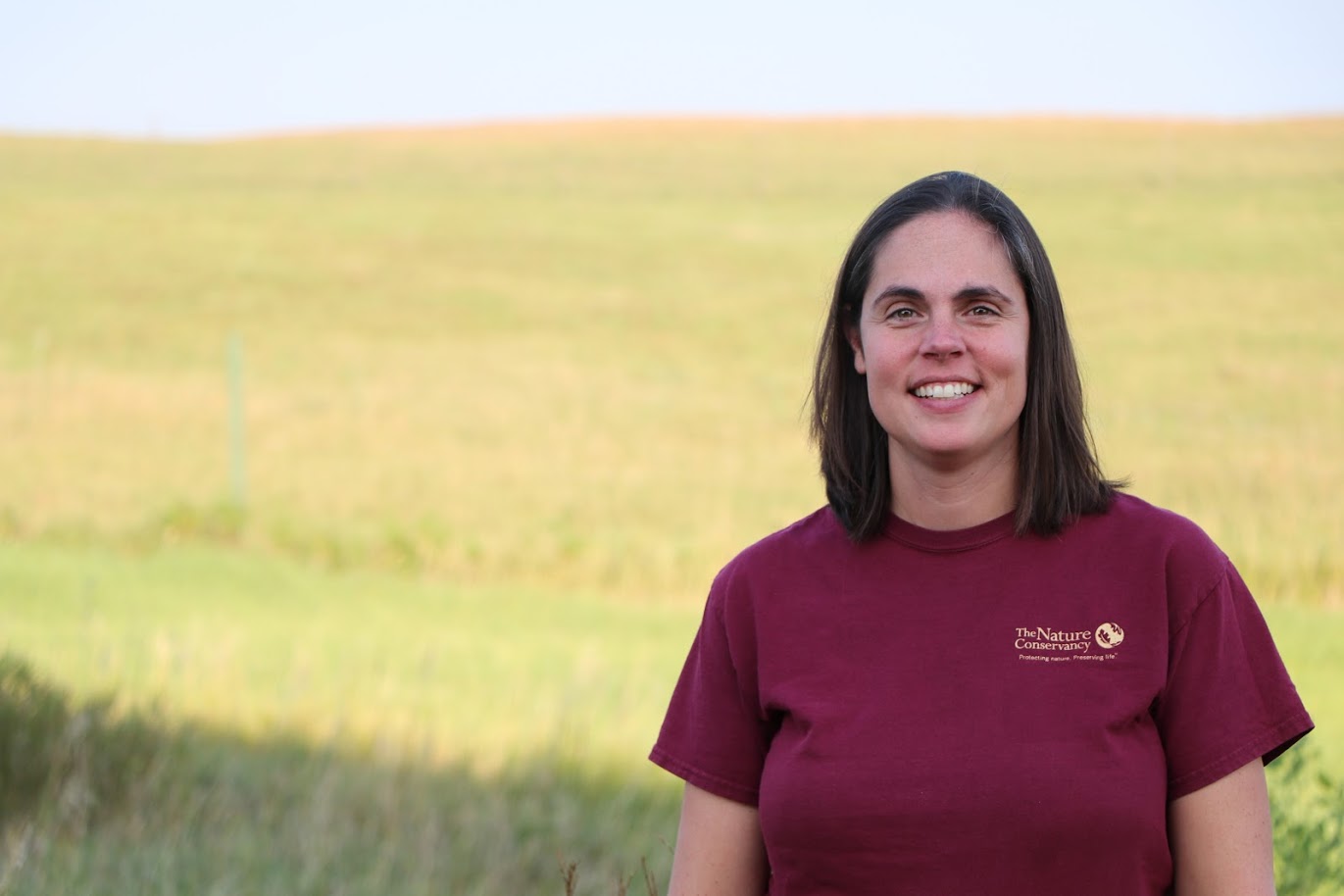
Minnesota
Marissa Ahlering, Director of Science for Minnesota, North Dakota and South Dakota
Marissa Ahlering loves to cheer for an underdog.
That’s one of the reasons why she loves the prairie. “Grasslands are so often overlooked,” she said. “I wanted to be a champion for something so cool that I feel like people don’t appreciate, because they don’t know it.”
Ahlering, the Director of Science for the Nature Conservancy’s Minnesota, North Dakota and South Dakota chapter, is based in Moorhead, Minnesota. She spends her days using science to answer questions to protect grasslands and solve problems for landowners wanting to be better conservationists.
Her work hasn’t been limited to the prairie. One day she found herself holding a plastic fork and knife in rural Kenya, digging into a monstrous pile of elephant poop.
You read that right. Elephant poop. Droppings from elephants can tell scientists a lot about these elusive animals’ movements and genetics.
But eventually, Ahlering was called back to the Great Plains, drawn to the grassland birds that she fell in love with during her grad school research at the University of Missouri. Threats to grassland birds like Baird’s sparrows and grasshopper sparrows have grown more intense thanks to habitat loss, climate change and other pressures. Ahlering’s work at TNC now helps to protect these critters.
“Knowing that they are struggling so much is one of the things that drives me to keep going sometimes,” she said.
Ahlering, who has been with TNC since 2010, said we still have a long way to go in achieving gender equity in conservation. Although more women are moving into the conservation space, she said, it can’t be taken for granted. Her advice to young women and girls interested in getting involved in conservation: Reach out to experts you look up to.
“I think people are often very willing and happy to share advice and make those connections,” she said.
Diversity in the conservation field is just as essential as diversity is in nature.
“Having different perspectives thinking about the same problem is going to produce different solutions. That’s why diversity is so important in all the things we do in conservation.”
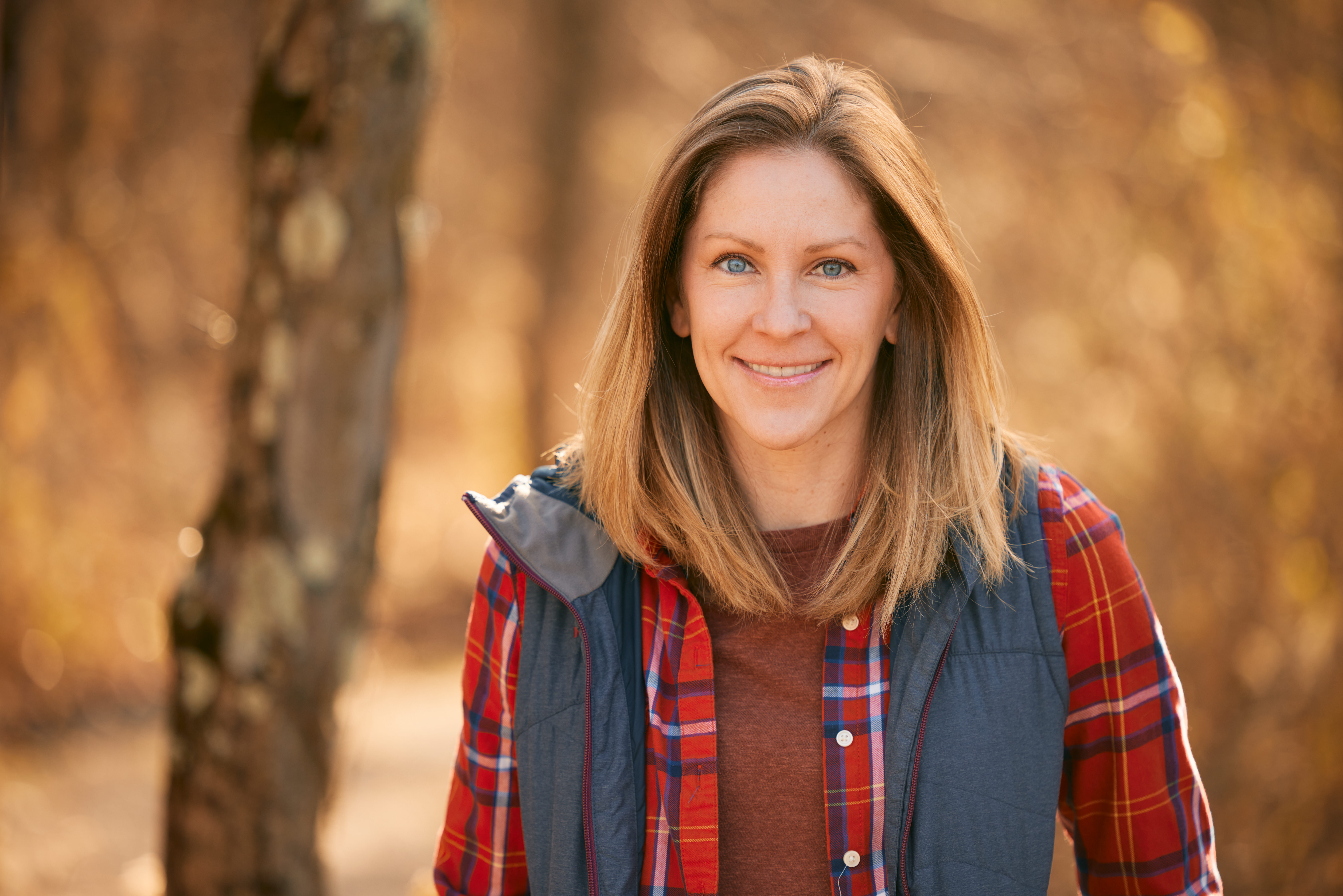
Ohio
Jen Murphy, Associate Director of Strategic Communications
I am not someone who always knew they’d work for an environmental organization. I didn’t methodically pursue experiences or courses that would prepare me for a job at The Nature Conservancy. Until I did.
I grew up on a piece of land that profoundly shaped my connection with nature. At the top of our modest countryside property in northern Kentucky sat an old farmhouse next to an even older barn that braced our neighbor’s drying tobacco leaves. At the bottom, a small creek meandered through the hillside. My dad also made sure we had opportunities to hike and camp, mostly in the Red River Gorge, where we spent time each fall enveloped in the season’s transition. In the country and in the forest, I found peace. They were the perfect place to explore and the beginning of a deep appreciation for nature as a place to heal from the tensions in my life.
When I went to college—representing the first in my immediate family to do so—I majored in strategic communications, mostly because I had developed a scrupulous understanding of words during childhood, and how they can make people feel.
After graduation, I went to work for a wealth management firm. Five years and multiple certifications later, I was a financial advisor on a large team. Despite the success I was experiencing, I felt empty inside. And I learned a valuable lesson: being good at something doesn’t mean you like it or that you are stuck with it.
So, I took a walk in nature. And I called my dad. And then I quit my job. I was privileged to have a supportive partner and access to financial loans to participate in a graduate program at OSU focused on the environment and natural resources. It felt like I was home again, surrounded by brilliant and passionate people who wanted to improve our shared world.
A few months after graduation, fittingly during Earth Month, I joined The Nature Conservancy in Ohio as their development writer. Twelve years later, I now manage the day-to-day implementation of our communications work for the Ohio chapter.
I have always been enamored with the emotional connection that can be created through powerful stories. Authentic communication brings us closer to a shared understanding, purpose and each other. My specialty is using that knowledge to build a bridge between our conservation work and our audiences. I remain grateful that I am helping restore the lands and waters that have, time and again, restored me.
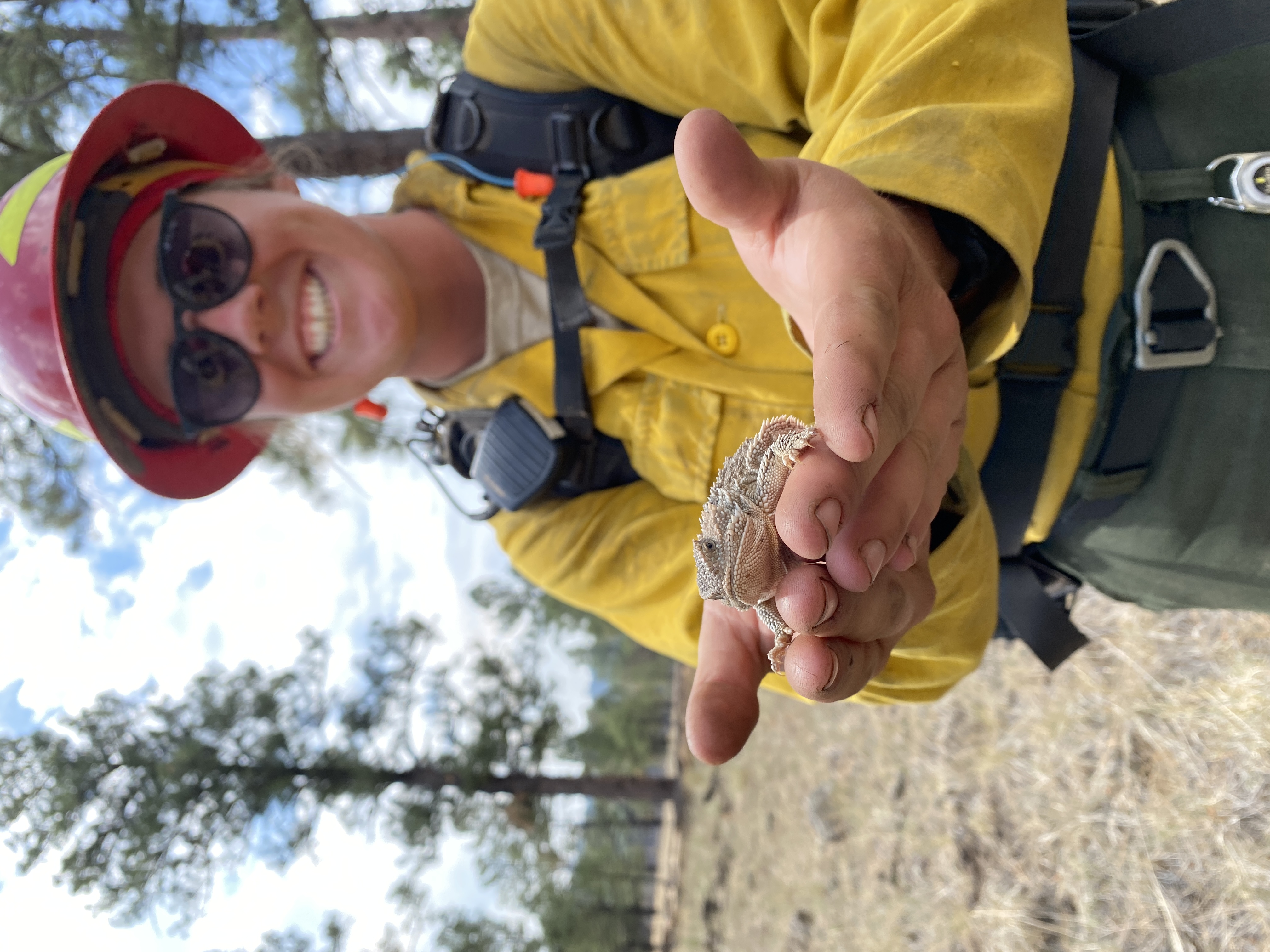
Wisconsin
Brooke Frederickson, Mobile Fire Crew Manager
Brooke Frederickson is the Mobile Fire Crew Team Manager for the Wisconsin chapter of The Nature Conservancy, and something of a force of nature. Though she’s only been with TNC since 2022, Brooke has been busy building an impressive resume ever since. That included serving with TNC’s North America Fire Program, which has seen her traveling the country to participate in trainings and collaborations that have helped get needed fire onto a wide variety of often challenging landscapes. Her dedication and hard work paid off with her recent promotion to the role of Mobile Fire Crew Team Manager, where she’ll now oversee the group tasked with getting prescribed fire onto Wisconsin preserves.
“I came on the job right before the spring prescribed burn season in 2022 and that is what really got me hooked,” Brooke says. “It’s been really rewarding to travel back to many of the burn units and see the results just a year or two later!”
Brooke got her start in conservation at the University of Wisconsin at Platteville, where she took classes that taught fire ecology and provided opportunities to do hands-on work at local prairies and with the Wisconsin Department of Natural Resources. Her advice to women looking to get into her line of work?
“Advocate for yourself,” she says. “There are so many possibilities and opportunities in this field, and it is important to advocate for yourself and your career goals. Take advantage of opportunities and/or seek them out yourself. It can be intimidating coming into a field that is mainly dominated by men, but that shouldn’t be a factor that deters you from what you want to accomplish and participate in. You belong to be here just as much as the next person!”
Words of Advice for Aspiring Conservationists
We asked each woman about the advice they'd give to folks—particularly women and girls—interested in joining or just starting out in conservation. Here's what they said.
Anna Dirkswager: Believe in yourself. No one has everything 100% figured out and I think it’s important to understand the value, experience and perspective women bring to leadership; especially in fields like energy and conservation.
Debra Williams: I would encourage individuals to attend more to who they are from the inside out and then show up as they participate in service with and for people. That way the individual and others authentically and holistically benefit.
Carrie Parmenter: Having a diverse education and experiences are key. Conservation encompasses so much more than just understanding science. It is important to have writing, public speaking, marketing, budgeting, computer, leadership and organizational skills. Take every opportunity you are given to learn and practice those skills.
Julia Petersen: If you want to work in environmental or conservation fields, explore the many ways you can apply your strengths and capabilities toward the conservation outcomes you care about. Where you need to increase knowledge or skills, work toward professional certifications or graduate studies that build on your interests, strengths and capabilities yet expand your environmental or conservation-related knowledge base. Finally, identify role models, mentors and colleagues, if not nearby, then via professional associations specific to your field, who inspire and encourage you.
Marissa Ahlering: Find somebody to connect with—a mentor or someone you can go to for questions. Reach out and ask if they would be willing to have a conversation about their work and how they got into the field. More often than not, the people you reach out to are going to be happy to have a conversation and share information.
Jen Murphy: People of all ages, genders and abilities will try to fit you into a box. Don’t let them. You are enough. There is not some other, better version of you that people need or that deserves success—it is who you are today. Be vulnerable. Trust yourself. Take a walk in nature. If you need help, we have a few tips for how you can do that safely!
Brooke Frederickson: Advocate for yourself. There are so many possibilities and opportunities in this field and it is important to advocate for yourself and your career goals. Take advantage of experience opportunities and/or seek them out yourself, the more experiences you have, the further you will go. It can be intimidating coming into a field that is mainly dominated by men; however, that shouldn’t be a factor that deters you from what you want to accomplish and participate in. You belong here just as much as the next person.

